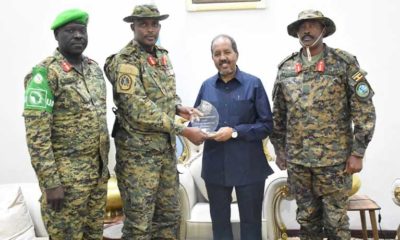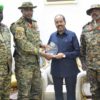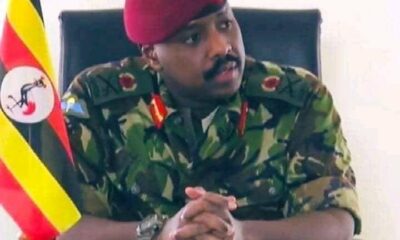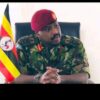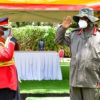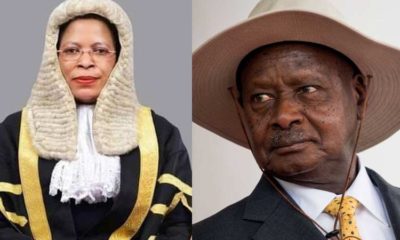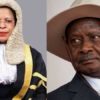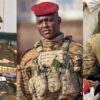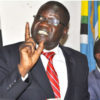Analysis
Sudan; Implications for Uganda’s intervention
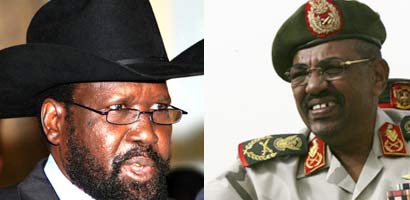
South Sudan President Salva Kiir and his friend/foe Sudan President Bashir. The duo’s new relationship could destabilise Uganda
While Uganda’s servicemen are still engaged in battles and other missions in far-away lands as Somalia, > the latest war next door in Sudan has added new demands to Uganda’s military.
The fighting, which is now in its third week, that followed a failed coup attempt by soldiers loyal to former Vice President Riek Machar, has destabilised President Salva Kiir’s youngest nation in the world and created a humanitarian as well as security crisis in the region.
The government of Uganda responded swiftly to the crises by the confirmed deployment of UPDF soldiers and equipment to South Sudan’s capital Juba, ostensibly to protect and rescue Ugandans who had been trapped by the fighting.
However, subsequent reports suggest that the UPDF went beyond its rescue mission and are now engaged in active war. Confidential sources inform The Sunrise that two of Uganda’s Mi-24 attack helicopters as well as a T-72 tank have been seen near Bor. In fact Riek Machar accused the UPDF of bombing their positions recently.
This week, while meeting his beleaguered friend Salva Kiir in Juba, President Museveni, who was part of an IGAD delegation to Juba, issued a four-day ultimatum to rebel leader Dr. Machar warning him to put down arms, or risk facing fire from neighbours.
Analysts would argue that Museveni or even IGAD members would only be able to issue daring threats only after establishing themselves firmly on Sudanese territory. The four-day ultimatum further confirms reports that Uganda is militarily present in Sudan for it and its allies to start giving the rebels short notices of active combat.
Justified intervention?
Because of its geographical, ethnic and economic ties, Uganda shares a life with South Sudan. The Northern neighbour is the biggest market in the region for Uganda’s agricultural as well as industrial commodities. Last year, according to the Minister of Trade Amelia Kyambadde, Ugandans sold goods worth over US$800m and most of this money was earned by small-medium enterprises as well as individuals who took their merchandise to the young nation.
Secondly, for a long time, South Sudan provided a hideout for Joseph Kony before Salva Kiir’s men defeated Bashir’s forces and established control over the Southern territory and expelled Kony along with the LRA.
Having a friendly and prosperous neighbour in the name of South Sudan would therefore be seen as a better strategy for Uganda.
Sequel of blunders
The current armed conflict in Sudan, many analysts have pointed out, is a result of a political struggle for power especially between Kiir and Machar along with top SPLM leaders, contrary to the opportunism and tribalism that has been smeared around it especially by President Kiir and his allies.
Observers argue that Kiir, in his desire to remain in power, dissolved the ruling party in November 2013, whose leader is supposed to take the presidency of the country. With the country gearing up for 2015 elections, the contest for power had started within the SPLA, had it not been for Kiir who sacked the party’s executive over allegations of incompetence.
Using totalitarian and tribalistic tactics, it is argued, Kiir sidelined his war-era colleagues including Machar, Rebecca Garrang – widow of the late Dr. John Garrang and several other political leaders, allegedly with the advice of President Museveni.
As of end of December 2013, 11 senior politicians were still kept in jail without trial despite pleas from the international community to release them and have them tried under a free and fair arrangement.
President Museveni’s tough language has also left many wondering whether he and other IGAD officials were in Juba this week as neutral mediators or that they had already taken sides in the conflict.
While accusing Uganda of supporting Kiir using superior weapons, Machar has allegedly refused to have President Museveni as mediator of the talks.
The fighting in South Sudan comes only weeks after Uganda was humiliated by a combined force of Tanzania and South Africa who defeated the allegedly Uganda-backed Congolese M23 rebels and forced them to flee to Uganda. Uganda’s efforts to organise a peace settlement have been rebuffed by the Congolese president who prefers to sign the agreement that is overseen by more neutral players like Kenya than Uganda.
It has been argued by Ugandan military officials, and perhaps rightly so, that preserving a country’s security and protecting its territorial integrity especially in an era of cross border terrorism, sometimes means going after the enemy beyond one’s borders.
Indeed, one can argue that by having a weak neighbour in the name of Sudan or Congo, necessarily creates a hideout for one’s enemies like Joseph Kony’s LRA or the Allied Defence Forces in Eastern Congo.
Museveni’s government therefore won international and national approval for fighting the al-Shabab from their own soil.
However, some believe that Uganda’s involvement in Congolese and Sudanese conflicts has been mishandled and is likely to undermine Uganda’s chances of going after the rebels merely because of the high level of distrust held by our neighbours.
Uganda’s real or perceived involvement in Congolese and Sudanese conflicts is a different matter, many believe. Apart from over-looking national and regional institutions and respect for global diplomatic standards, there is a sense that Uganda’s involvement in regional conflicts is aimed at destabilising neighbours for personal interests.
The build up of mistrust among Uganda’s neighbours may have been captured in the news report this week that was attributed to former Kenyan Prime Minister Raila Odinga telling President Museveni not to stick his nose in Kenyan affairs.
The conflicts in Congo and now Sudan have severely dented Museveni’s authority as a trusted mediator and respected statesman in region not only from the perspective of the international community but more so among the warring factions of South Sudanese politics who have for long considered him ‘father’, considering his role in the liberating them from Bashir’s Khartoum.
Uganda now risks being perceived by neighbours as war mongers other than peace makers. This would seriously undermine Uganda’s economic and political interests in the region including opening up markets for labour and goods for our agricultural and nascent industrial sectors.
On the other hand, the endless wars, while some may be justified, are proving too costly for an economy the size of Uganda and therefore suffocates critical sectors of the economy of badly needed resources for growth and employment creation.
Comments



